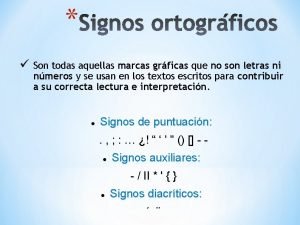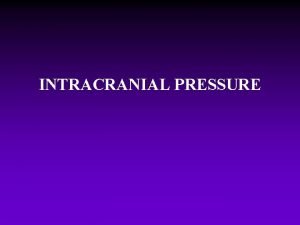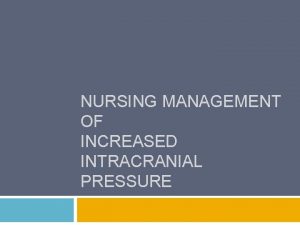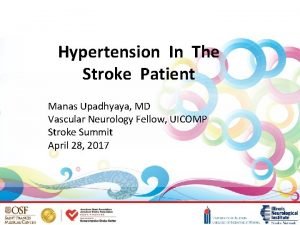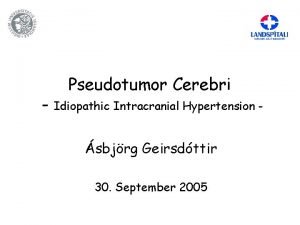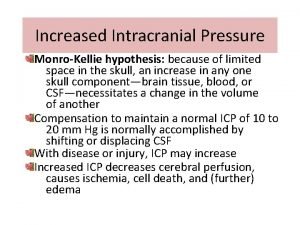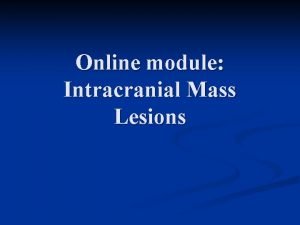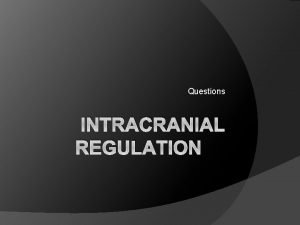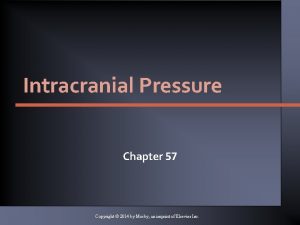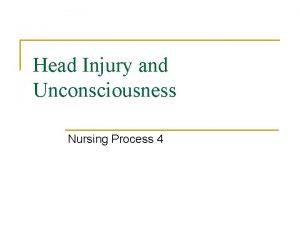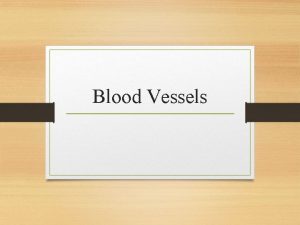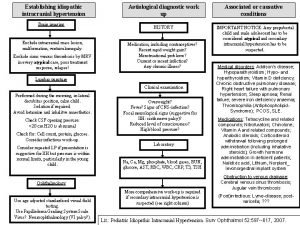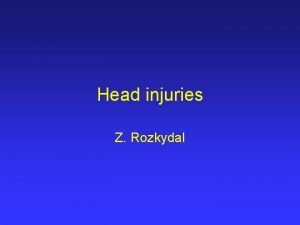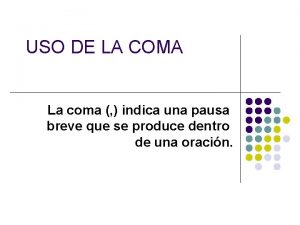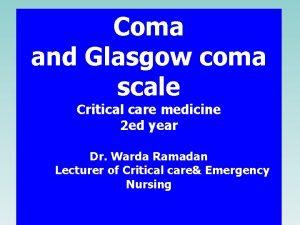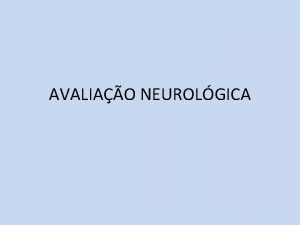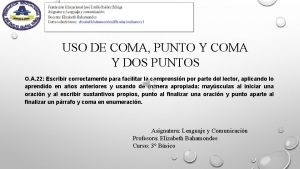Unconsciousness Coma Z Rozkydal Intracranial causes Vessels head
















- Slides: 16

Unconsciousness Coma Z. Rozkydal

Intracranial causes Vessels: head injury, bleeding haematoma, anomalies, ischemia Infection – meningitis, encefalitis, abscesus Tumors Epilepsy

Extracranial causes Poisoning (CO, alcohol, drugs) Metabolic diseases (DM, hypothyreosis) Systemis failure- liver, kidney Stop of breathing and circulation - in 30 seconds

Level of consciousness 1. Somnolence drowsiness 2. Sopor lower level of consciousness reaction to pain 3. Coma deep unconsciousness

Level of consciousness A Alert, respond to questions eyes are open V Voice, respond to voice, obey commands P Pain, respond to pain U Unresponsive to any stimulus

First aid Seek the cause Monitor vital signs Opening the airways- tilt his head back lift the chin Checking breathing Recovery position, injury- the same position AED CPR Avoid aspiration, nothing orally Transport

Recovery position

Faintness- syncope Short loss of consciousness Causes: bradycardia, arythmia postural hypotensis vasovagal faintness

First aid Horizontal position Raising of legs Fresh air Fluids

Extracranial unconsciousness

Diabetic coma DM- insufficient production of insulin Hyperglycaemia, osmotic diuresis Loss of fluids Metabolic acidosis, aceton Loss of potassium and natrium Brain is depedent on plasmatic glucose Utilisation of glucose in brain is not controlled by insulin

Signs Polyuria, polydypsia Dry, warm skin, dehydration Rapid pulse and breathing Excessive thirst Deep breath Fruity sweet breath- aceton in the breath Nausea and vomiting Unconsciousness Mortality 50 %

Hypoglycaemia – coma Causes: insulin- sugar balance is incorrect high doses of insulin, alcohol Signs: Weakness, faintness, confusion Sweating with cold clammy skin Rapid pulse, muscle tremor Deteriotating level of response Feels hungry First aid in both- sugar, glucose fluids

Hepatal coma Renal coma (uraemia) Hyperthyreosis Hypothyreosis

Death of brain History of brain lesion Areflexia, apnoe from the brain stem No reaction of pupils No reaction to pain No breathing for 10 minutes after stopping of ventilation with oxygen EEG – ½ hour isoelectric line Brain angiography – no vascularisation above the base

Signs of death Patches (6 -12 hours) Cold body (1˚C / hour) Stiffness (after 6 -12 hours) Decomposed body (after 2 days)
 First aid for unconsciousness
First aid for unconsciousness First aid for unconsciousness
First aid for unconsciousness Funcion de la raya
Funcion de la raya Alcohol consumption causes blood vessels to contract.
Alcohol consumption causes blood vessels to contract. Cushing's reflex
Cushing's reflex Decorticate
Decorticate Intracranial teratoma
Intracranial teratoma How does meningitis cause increased intracranial pressure
How does meningitis cause increased intracranial pressure Intracranial hypotension radiopedia
Intracranial hypotension radiopedia Intracranial hypertension
Intracranial hypertension Adhesive arachnoiditis
Adhesive arachnoiditis Intracranial hypertension
Intracranial hypertension Increased intracranial pressure ati
Increased intracranial pressure ati .mui.ac.ir
.mui.ac.ir Intracranial mass
Intracranial mass Intracranial regulation nursing
Intracranial regulation nursing Patient condition
Patient condition


